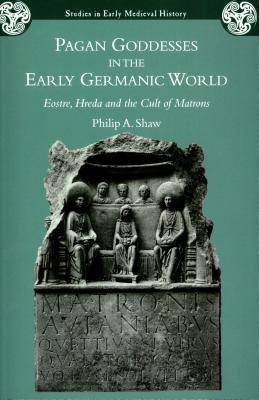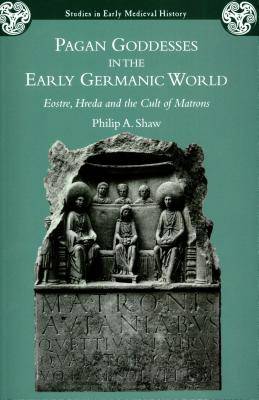
- Afhalen na 1 uur in een winkel met voorraad
- Gratis thuislevering in België vanaf € 30
- Ruim aanbod met 7 miljoen producten
- Afhalen na 1 uur in een winkel met voorraad
- Gratis thuislevering in België vanaf € 30
- Ruim aanbod met 7 miljoen producten
Omschrijving
This book considers evidence for Germanic goddesses in England and on the Continent, and argues on the basis of linguistic and onomastic evidence that modern scholarship has tended to focus too heavily on the notion of divine functions or spheres of activity, such as fertility or warfare, rather than considering the extent to which goddesses are rooted in localities and social structures. Such local religious manifestations are, it is suggested, more important to Germanic paganisms than is often supposed, and should caution us against assumptions of pan-Germanic traditional beliefs. Linguistic and onomastic evidence is not always well integrated into discussions of historical developments in the early Middle Ages, and this book provides both an introduction to the models and methods employed throughout, and a model for further research into the linguistic evidence for traditional beliefs among the Germanic-speaking communities of early medieval Europe.
Specificaties
Betrokkenen
- Auteur(s):
- Uitgeverij:
Inhoud
- Aantal bladzijden:
- 128
- Taal:
- Engels
- Reeks:
Eigenschappen
- Productcode (EAN):
- 9780715637975
- Verschijningsdatum:
- 25/08/2011
- Uitvoering:
- Paperback
- Formaat:
- Trade paperback (VS)
- Afmetingen:
- 155 mm x 231 mm
- Gewicht:
- 204 g

Alleen bij Standaard Boekhandel
Beoordelingen
We publiceren alleen reviews die voldoen aan de voorwaarden voor reviews. Bekijk onze voorwaarden voor reviews.











